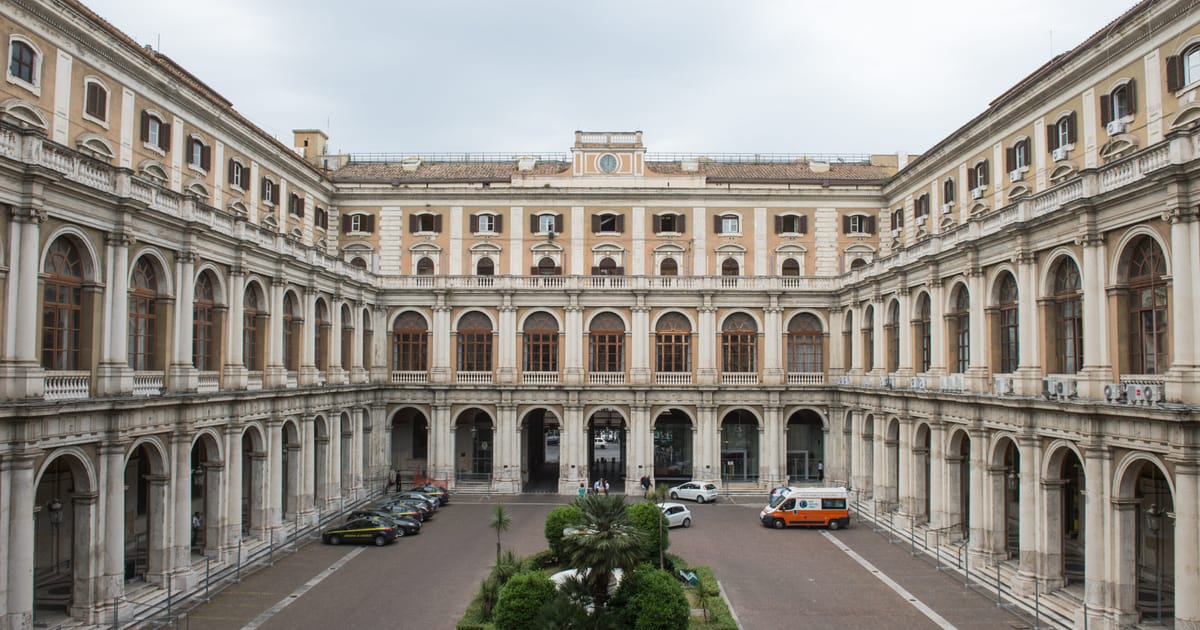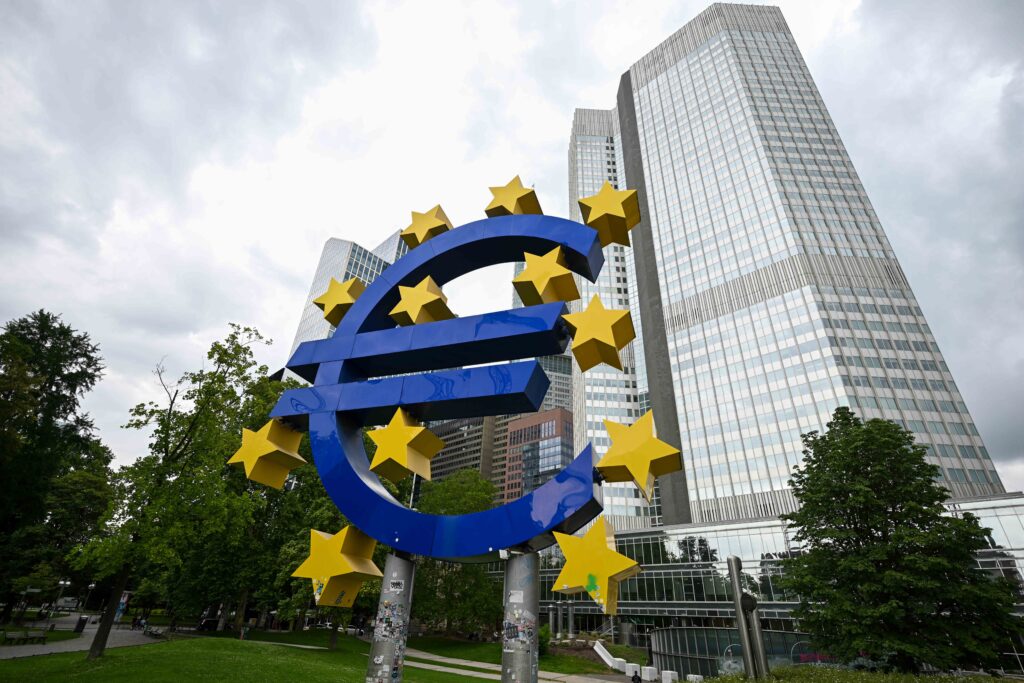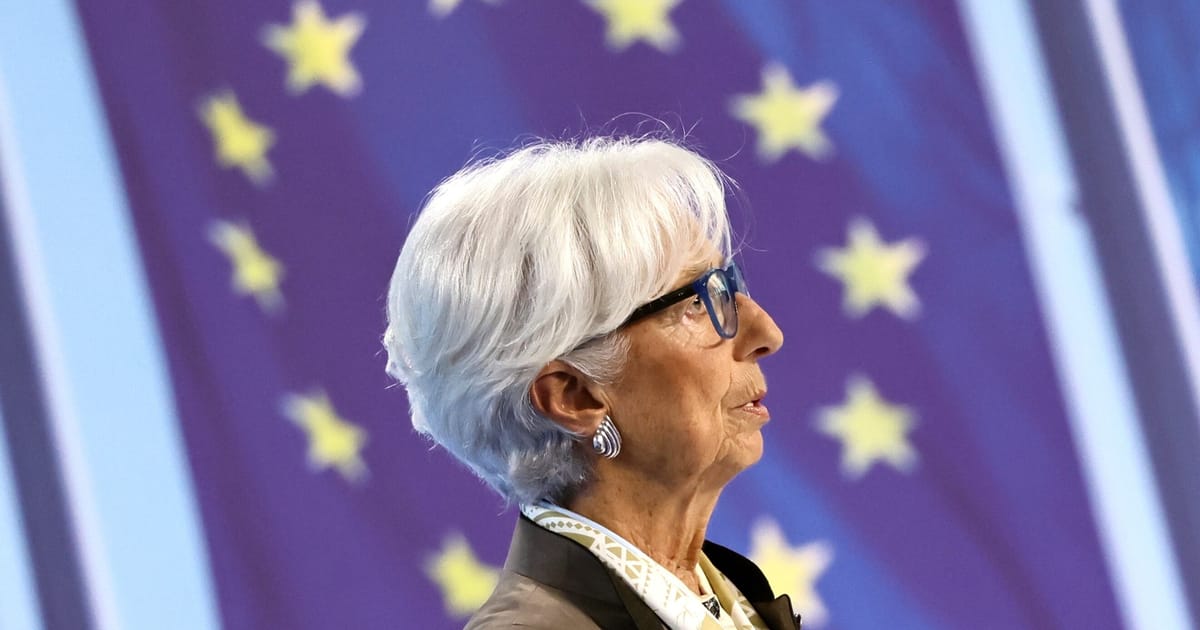Giorgia Meloni has touted herself as a friend to business since coming to power in 2022, but her government is looking hard at squeezing it next year in her efforts to narrow Italy’s yawning budget deficit.
With the summer holidays over, minds at the Ministry of Economy and Finance are already turning to the question of how to make sure the government meets its target of bringing the deficit back under the EU’s limit since the Covid pandemic. And with slow growth likely to cap the main sources of revenue such as income tax and value added tax, the temptation to go after Italy Inc.’s cash pile has risen.
In draft documents seen by POLITICO, dated Aug. 28, officials laid out several options to discourage the use of stock buybacks, a process used by companies to return excess cash to shareholders, generally boosting their share price in the process.
The practice has also drawn increasing scrutiny in recent months as companies — especially banks — have recorded bumper profits. UniCredit, for example, bought back more than €5 billion in stock last year and has similar plans for 2025 and the next two years. Intesa Sanpaolo bought back €1.7 billion last year and is doing another €2 billion this year.
For Prime Minister Meloni, the move represents a way to balance major new defense commitments with the needs of Italy’s creaking welfare state. And for the populist League, the second biggest of the three parties in her right-wing coalition, the focus on buybacks represents a fresh attempt to raid big business after the banks successfully fought off its attempt to impose a windfall tax on them last year.
Decisions, decisions
The first option raised by officials would be to hike capital gains taxes on all shareholders — without distinguishing between gains from trading and those generated by share buybacks — to 30 percent from 26 percent.
“The main advantage of this option lies in its administrative simplicity,” according to the documents. “There would be no need to introduce new rules or specific definitions for buybacks; it would be enough to amend the existing tax regime on financial income.”
But the effect would be “broad and unfocused,” punishing equity traders and smaller retail savers as well as those buying back stock.
Another option is a duty applied to the “total value of buyback operations,” meaning the tax would fall both on the issuing company and on shareholders who choose to redeem shares. The policy would send a “strong signal of intent to discourage the use of buybacks as the primary tool for distributing profits,” the document says, while caveating that such a measure could discourage buybacks justified by “legitimate industrial needs.”
The third and most “technically complex” option would be to tax only the profits made by the issuing company should it eventually resell repurchased shares at a higher price. The Treasury noted that such a scheme would only penalize companies, but added it would also require a raft of potentially convoluted new rules.
Pinch of salt
This wouldn’t be the first time the Italian government has pushed to tax corporate profits ahead of budget season, but generally such policies end up watered down after discussions with stakeholders.
While the League is in favor of taxing banks, officials from the center-right Forza Italia, which is supported by Italy’s main banking association, are opposed to any tax on banks. That typically results in a weaker compromise once differences are hashed out.
Last year, for instance, the government proposed a tax that was not quite a tax — instead of imposing a levy on bank profits, it ultimately asked them just to delay the use of tax credits. In 2023, a controversial tax on windfall profits was ultimately substituted with an option to let banks bolster their capital levels instead.
Lenders themselves have responded with outrage over the past week as media speculation has ramped up over the prospect of a new bank tax.
“Banks already contribute significantly to social issues and the fight against poverty, and they are already taking responsibility,” Lando Maria Sileoni, secretary general of Italy’s banking employees’ federation, said in a statement Thursday.
A clearer picture of how a potential buyback program might work may emerge following an Italian government strategy meeting planned for early next week, according to one person familiar with the matter.





